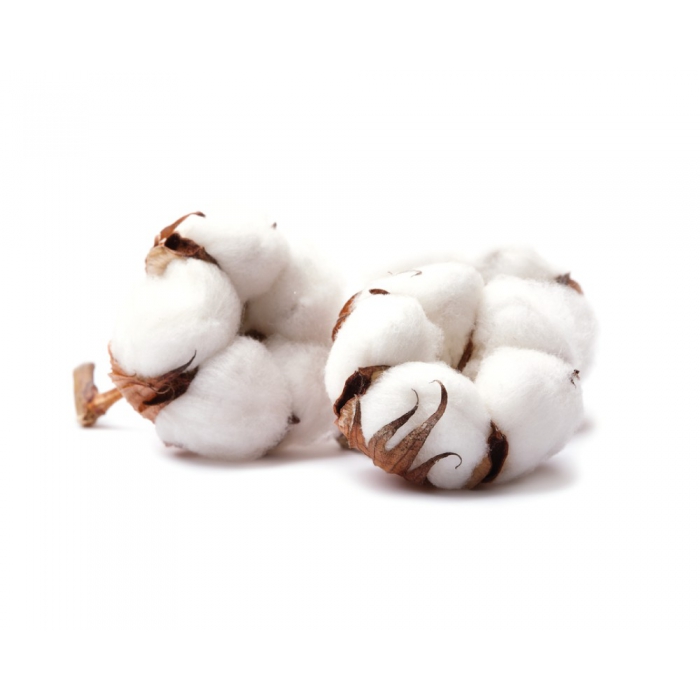



Cotton milk is an extract of Gossypium sp., seeds, which contains cotton lipids, proteins and sugars as an emulsion.
INCI: Aqua, Propylene Glycol, Gossypium Herbaceum Seed Extract, Gossypium Herbaceum Seed Oil, Glyceryl Stearate, PEG-60 Hydrogenated Castor Oil
Silk milk
Activity on the skin
This activity is due to the carbohydrates, proteins and fatty acids content of cotton seeds. · Carbohydrates Carbohydrates are able to absorb and retain water, under certain conditions. Some carbohydrates remain on the surface of the stratum corneum, thus acting as moisturizing and filmogenic substances, which noticeably improve skin biomechanical properties. Moisturizing agents are compounds, which contribute to maintain the skin water-balance. Moisturizers contribute flexibility to the stratum corneum; they facilitate desquamation through their action on corneodesmosomes and affect the lipids, which exert the barrier function. Filmogenic agents are macromolecules, which remain on the stratum corneum surface, where they retain water and improve the barrier function evaluated the moisturizing effect of different proteins, including vegetable proteins and derivatives. In a first assay, they evaluated the moisturizing effects of an O/W emulsion containing 1% protein hydrolyzate. The results showed that the protein hydrolyzate-containing emulsion significantly increased skin immediate extensibility (Ei). They also evaluated the tightening effects of two high molecular weight proteins in aqueous solution. The results showed that incorporating proteins into an aqueous formulation significantly decreased Ei during the treatment period. This finding could be explained by the ability of proteins to form a coating film on the skin surface, which resulted in tightening effects. Thus, low molecular weight proteins are good moisturizing agents, while high molecular weight proteins are good conditioning and firming agents. V 02-10/06 40250-5 ·
Fatty acids Essential fatty acids are major compounds in the organism. Essential fatty acids, including some unsaturated fatty acids, cannot be synthesized in the organism and must therefore, be incorporated with the diet. Essential fatty acids deficiency produces skin symptoms and deterioration of skin functions.
The traditional conception of lipids’ moisturizing action on the skin is that they exert and occlusive action, namely that they prevent water evaporation by coating the skin with an impermeable film.
Lipid molecules have also the ability to improve skin lubrication, contributing plasticity and substantivity (remaining on the skin surface for a certain period), and giving shine and flexibility to the skin, all of which improves its extensibility. Both properties determine the emollient properties of lipids (Carbajo Espejo, J.M. et al., 2004). Therefore, cotton milk is highly recommendable to formulate cosmetic products with skin moisturizing, conditioning and emollient properties.
Activity on the hair
This activity is based on the protein content of cotton seeds. Proteins protect the hair from environmental damage, repair and condition it, and increase its elasticity by coating the hair-shafts and reducing the risk of breakage (Griesbach U. et al., 1998). Low molecular weight proteins can penetrate into the hair-shaft cortex, thus repairing, strengthening and protecting it from the inside. High molecular weight proteins – due to their ability to coat the hair-shaft surface – are good hair soothing and protecting agents (Huetter, I., 2003). Thus, cotton milk is recommendable to formulate cosmetic products with hair conditioning and repairing activities.
| Use | Hair care, skin care |
| Recommended concentration |
From 1,0 to 5,0%. |
| Storage | In the fridge |
| Solubility | Soluble in fats. |
| Expiring date | Given on the package |